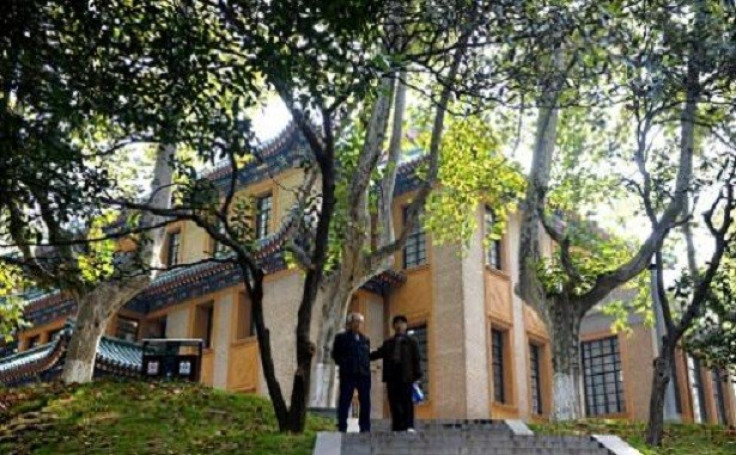China Restores Chiang Kei-Shek Home in Zhejiang - and Hails his Wife

Chinese officials have lovingly restored the home of nationalist leader Chiang Kai-shek who fought for years against Communism.
More than £3 million has been spent on sprucing up the three-storey property located in Nanjing, in the north-eastern province of Zhejiang.
The project could be considered out of character for the Communist government of China, which has repeatedly shown intolerance to divergence from its official party line.
Yet more than a year of labour has been poured in to improving Kai-Shek's residence in what is being interpreted as a diplomatic gesture aimed at Taiwan.
The flattery of Taiwan's former leader at the property is summed up by a sign declaring about Kai-Shek's wife Soong: "The manor is like its mistress, graceful and elegance, knowing both Chinese and Western style."
After being defeated by the Communist forces in China's bloody civil war, Kei-Shek fled to Taiwan where he ruled for 20 years. But he never renounced his claim to be China's rightful ruler.
The restoration of the home of one of Communism's most avowed foes comes at a time when China is ruffling its neighbours' feathers by asserting itself in international air space.
South Korea, Japan and the United States have condemned an "air defence zone" China created unilaterally last weekend. So China is perhaps keen for good relations with at least one of its neighbours.
Communist official Liao Jinhan admitted the restoration served a diplomatic purpose. "This renovation has a very important use for cross-strait cultural exchanges, so we considered that. Our feeling is that the house is a very important cultural heritage landmark," he said.
But it will take more than a lick of new paint to bring about a closer union between China and the land formerly ruled by its deadliest foe.
China expert Tong Liqun, of the Shanghai Institute for Institute for International Studies, said: "The renovation is significant for cross-strait cultural contacts as it shows the mainland's focus on preserving historical heritage related to the Kuomintang.
"To take relations one step further would mean exchanges in the field of politics, and that is where the two sides are having trouble."
© Copyright IBTimes 2024. All rights reserved.






